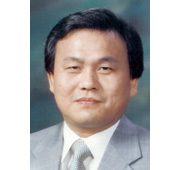Hangeul, a uniquely Korean Script
It is an immensely positive sign for the nation that a growing number of foreigners are undertaking the study of the Korean language and Hangeul, the Korean alphabet in the wake of “Hallyu” ― the Korean Wave, which refers to the spread of Korean pop culture around the world.
Furthermore, the recent international success of the Korean rapper Psy’s “Gangnam style” which flooded radio, TV and YouTube led to an increasing number of foreigners seeking to learn Hangul, and this resulted in boosting the popularity of Hallyu to new heights.
In the course of Korean history, King Sejong (1419-1450), the fourth monarch of the Joseon Kingdom, is regarded as the nation’s most highly respected king for his outstanding accomplishments in a wide range of fields such as politics, military defense, culture and science. However, the most celebrated achievement of King Sejong’s monarchy was the creation of a unique system of Korean writing.
In the early years of his reign, King Sejong longed for the establishment of a writing system by which all Koreans could simply and accurately communicate the discourse of their daily lives.
At that time, Chinese characters were used to communicate spoken language in written form. This practice came with an inbuilt disadvantage in that it did not capture the essence of what Korean people were saying in their native tongue. Consequently, there was a disparity between the spoken and written word, which effectively separated, linguistically as well as socially, those who used Chinese characters, that is, the literati-Confucian scholars and a minority of the government elite, and those who did not, namely, the vast majority of the Korean population.
King Sejong’s longing for a Korean script led him to embark on an extraordinary effort to develop a writing system that was not only a much simpler and more effective means of communication for the peasants, laborers and the underprivileged classes of people, but was also a means of raising the consciousness of these people to the world around them.
The result of King Sejong’s efforts was Hangeul, a unique Korean writing system which he developed with the assistance of linguistic scholars and promulgated in 1446 in a book entitled “Hunmin jeong-um”: “The Correct Sounds for the Education of the People”.
King Sejong then ordered a compilation of the “Songs of the Dragons Flying to Heaven (Yongbi Eocheon-Ga),” a poetic paean to the establishment of Joseon Kingdom, to be the first literary work published in the phonetic script, Hangeul, and this was accomplished in 1447.
Exactly 532 years later, in 1979, Yongbi Eocheon-Ga was translated into English and published in a book by Dr. James Hoyt which resulted in international attention being focused on Hangeul. Dr. Hoyt was a specialist in Korean studies who became an American diplomat and served as a Cultural Attache at the American Embassy in Seoul in the late 1970s.
The invention and wide-spread use of Hangeul resulted in a very high rate of literacy amongst the Korean people and an overall improvement in their quality of life. Hangeul is considered to be one of the most efficient writing systems in the world and has garnered international scholarly praise for its scientific and efficient design and application.
This praise is a result of the fact that Hangeul is not derived from other written languages, nor is it a derivation of another set of linguistic characters. Rather, Hangeul is a unique construction which consists of a 24 letter alphabet comprising 14 consonants and 10 vowels which exactly replicates, resonates with, and effectively expresses a complicated, ancient/modern language.
Hangeul is a truly distinctive cultural product, an invention which mirrors Korea’s efforts to create a prosperous, modern nation and stands as a harmonious symbol of national pride and identity which transcends the limiting boundaries of age, social standing, lineage, gender and education. Hangeul is also making its way around the world through an ever-increasing number of foreigners’ keen interest in learning the Korean language.
In this sense, we should exert every effort to promote Hangeul in the realization that it is a treasured cultural asset which enhances global recognition of the richness of Korean culture, often in the face of an indiscriminate acceptance of the best and the worst that foreign cultures have to offer. <The Korea Times/Choe Chong-dae>




